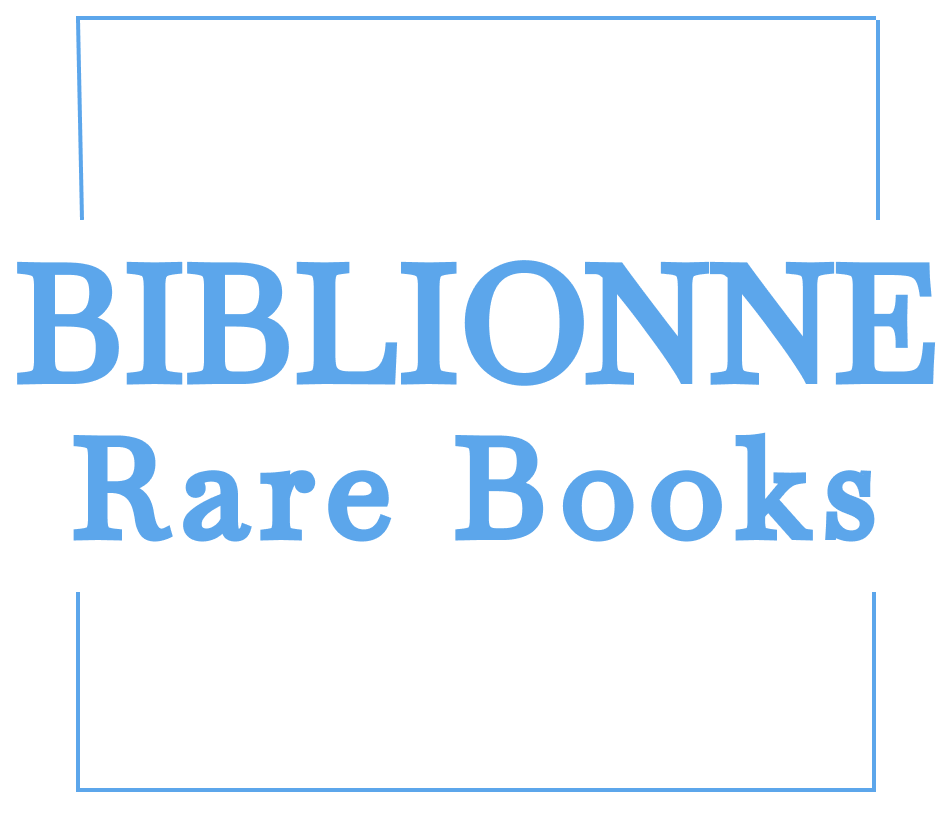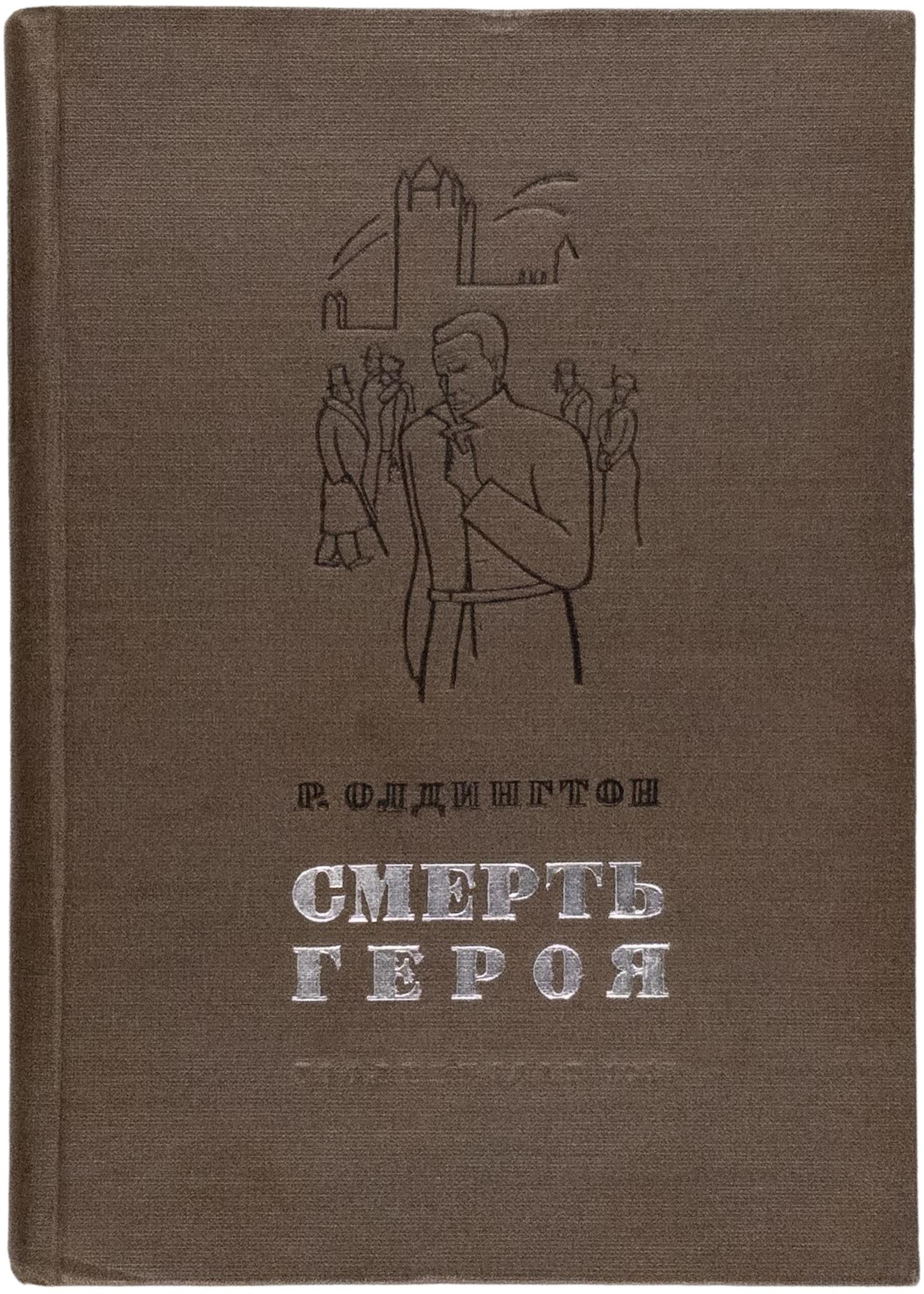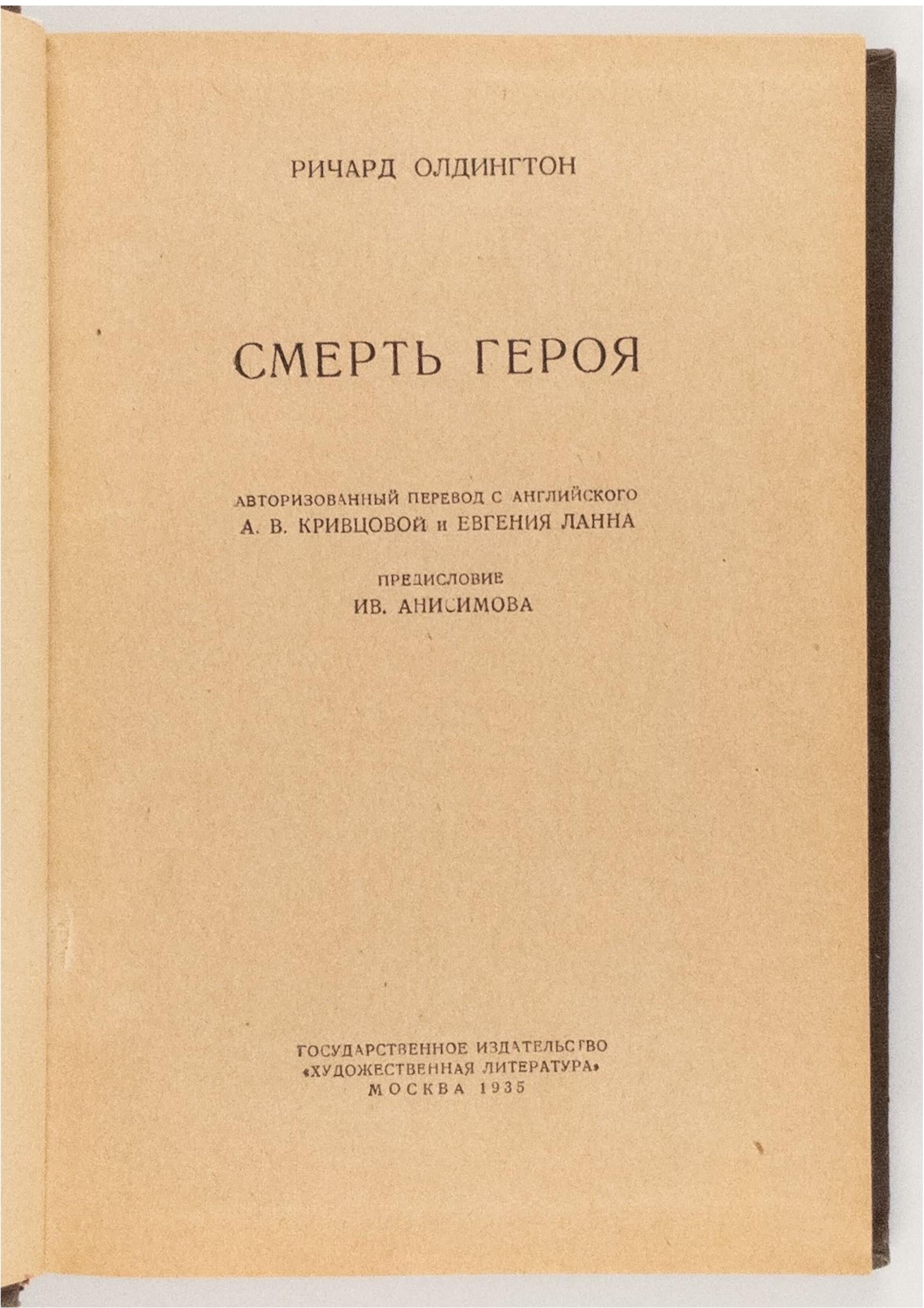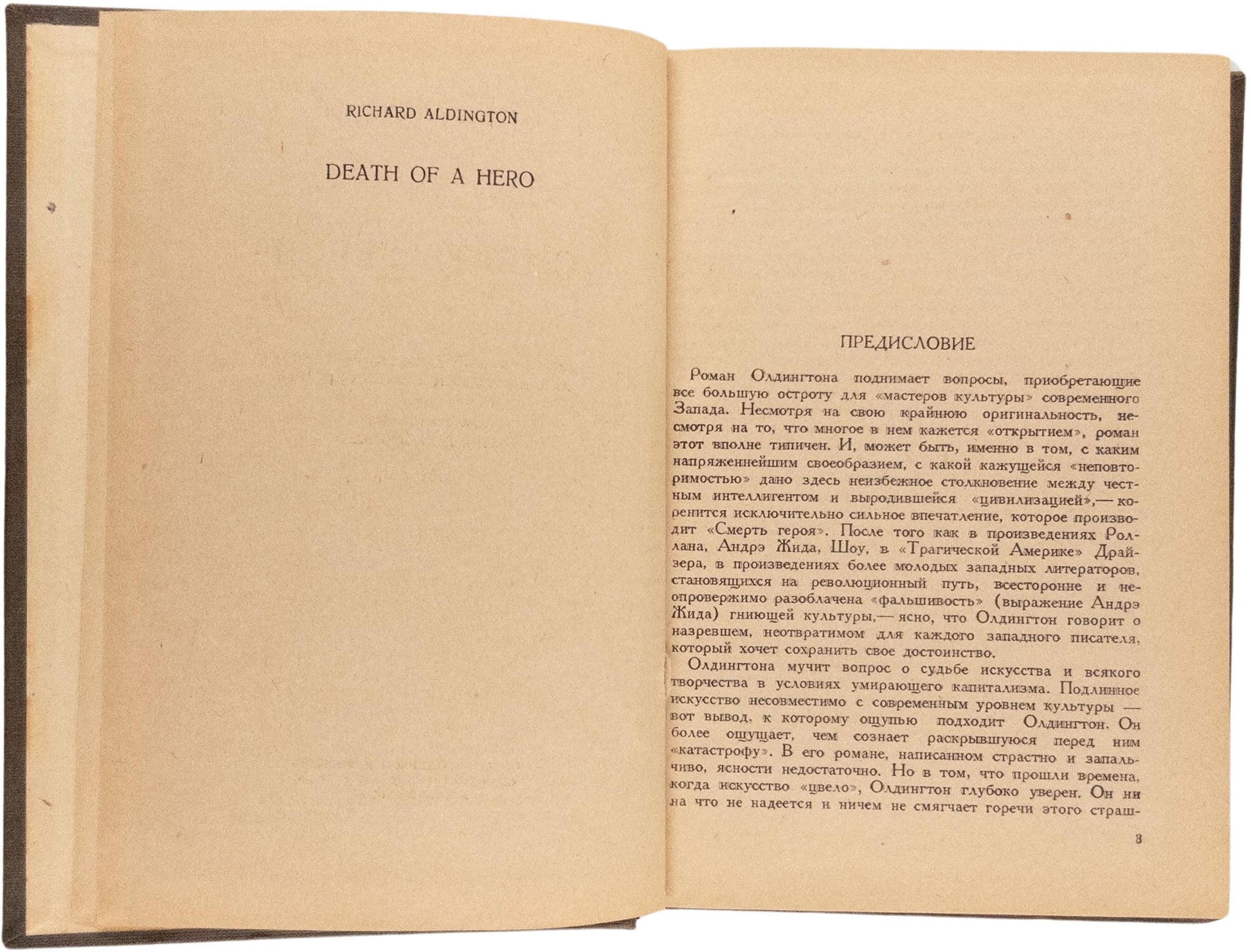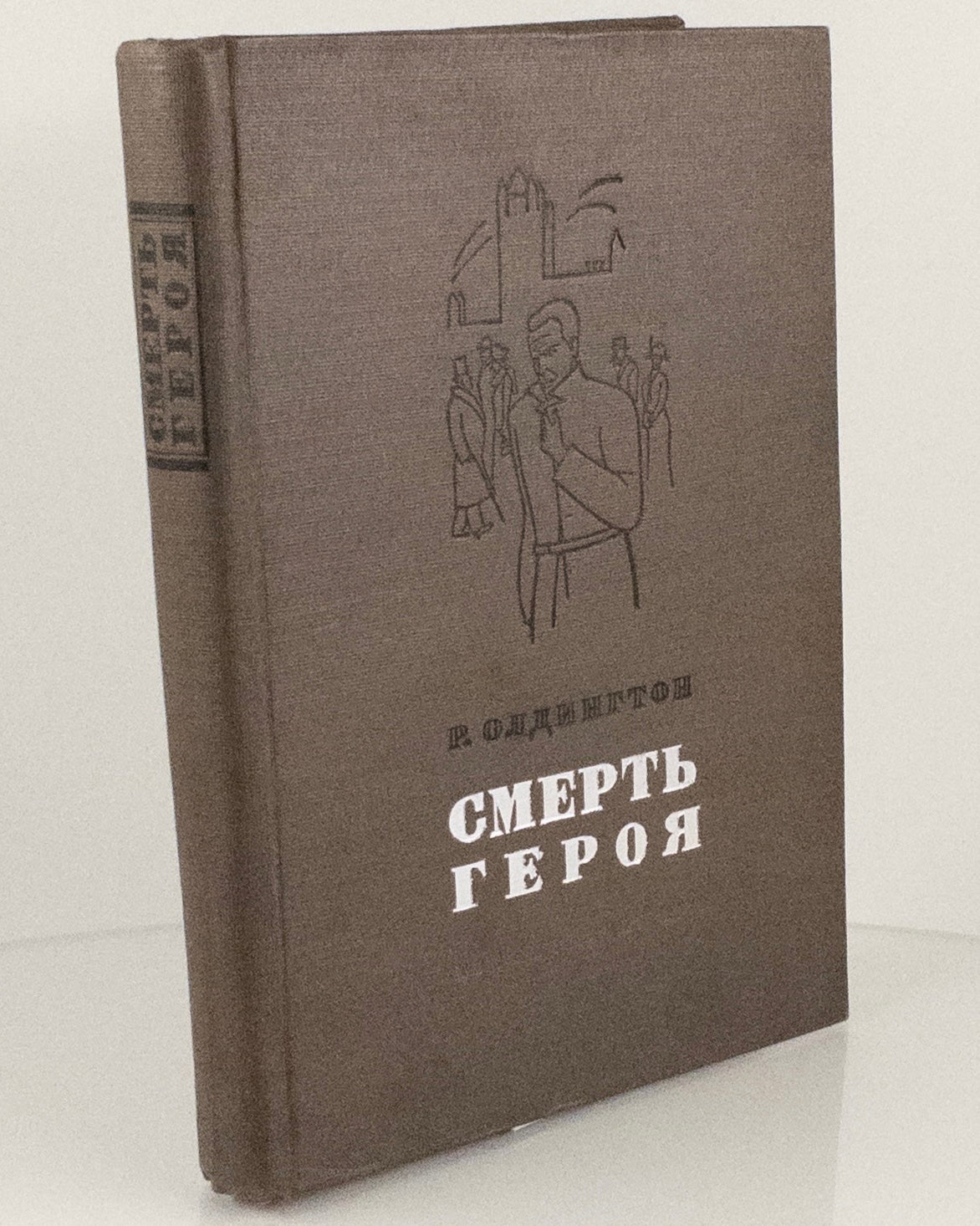Aldington, Richard
Death of a Hero. Second of this translation of Aldington’s first book in Russian.
Death of a Hero. Second of this translation of Aldington’s first book in Russian.
Couldn't load pickup availability
Aldington, Richard [Death of a Hero]. Smert' Geroia.
Authorized translation from English by A. Krivtsova and E. Lann.
Preface by Iv. Anisimov.
[Book design by L. Litvak].
Moskva, Khudozhestvennaia literatura, 1935.
8vo, 355, [4] pp.
In original pictorial cloth.
Near very good condition, small stains to back board, corners of back board lightly bumped, some water-staining to outer margin of last pages.
Second and final edition of this translation of Aldington’s first book in Russian. One of 10 000 copies printed.
‘Death of a Hero’ (1929) by Richard Aldington (1892-1962), a novel dedicated to the so-called ‘lost generation’ and one of his most significant works, was first translated into Russian in 1932, marking the author's debut in the Russian literary scene. It's interesting that Maxim Gorky, often referred to as the ‘founder of Socialist Realism’, described the novel as ‘angry and full of terrible despair’.
This authorized translation was a collaborative effort by Aleksandra Krivtsova (1896–1958) and her husband, writer and translator Evgenii Lozman, known by his pen name Lann (1896–1958). Together, they undertook the translation of various literary works, including those by Charles Dickens and Joseph Conrad. They are also known for producing the first Russian translation of Stephen Crane's ‘The Red Badge of Courage’. The couple's lives ended tragically. When Alexandra discovered she had cancer, they decided to commit suicide together. However, Eugene survived and was accused of murdering his wife. He died soon after, before being arrested.
In contrast to the previous edition of this translation, this one includes a new preface written by the literary critic Ivan Anisimov (1899-1966). He served as the head of the department of world literature at the Institute of Red Professors during the 1930s and later as the director of the Gorky Institute of World Literature from 1952 to 1966.
In his preface, Anisimov lauds Aldington as one of England's most cultured and talented writers, who depicts the crisis of contemporary art and the ‘decline of Europe’. However, Anisimov criticized Aldington for not embracing the ‘new world’ and not participating in the ‘revolutionary struggle against capitalism’. Additionally, he noted that Aldington did not allow the novel's main character to stand up against England – ‘old bitch’. The preface also makes reference to ‘The Colonel's Daughter’, Aldington's second work translated into Russian and also published in 1935, where Anisimov believes Aldington lost the grand pathos present in ‘Death of a Hero’, his best work.
A new translation of the novel appeared only in 1961.
In 1962, not long before his death, Aldington was invited by the Soviet Writers' Union to celebrate his 70th birthday and spend three weeks in the USSR. ‘Ironically, Soviet scholars ranked RA considerably higher among twentieth-century British writers that did his own countrymen. That RA should be so honored just before his death was happy and fortunate. His letters and diary entries that tell of his visit make heart-warming reading’ (Norman T. Gates. Richard Aldington: An Autobiography in Letters. Penn State Press, 2010).




